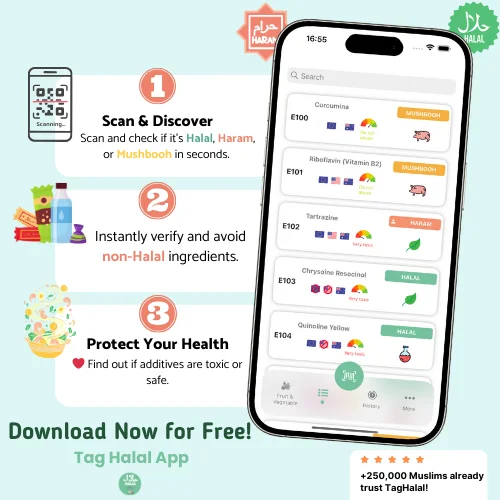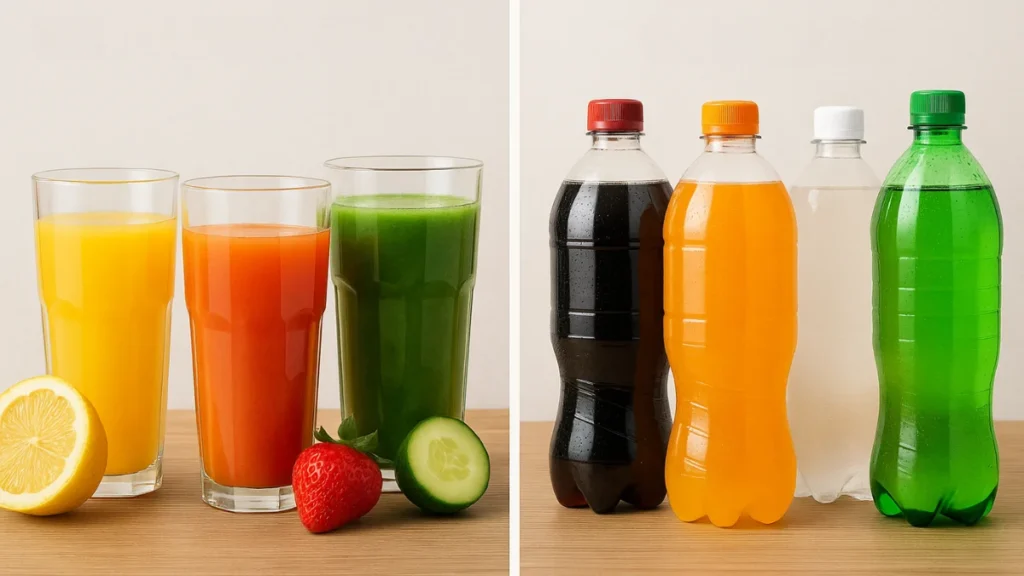The question of whether non-alcoholic beer is halal is one of the most frequent inquiries in our community. As Muslims, it’s natural that we seek clarity about which beverages we can consume without compromising our religious values. In this article, we’ll explore everything you need to know about non-alcoholic beverages and their compatibility with Islamic guidelines.
Is Non-Alcoholic Beer Halal? A Fundamental Question
To understand if non-alcoholic beer is halal, we must begin by understanding what “non-alcoholic” really means in the beverage industry. This is a matter that goes beyond commercial labels and requires a deep analysis from an Islamic perspective.
The answer is not as simple as it might seem. Although beverages labeled as “non-alcoholic” contain significantly less alcohol than their traditional versions, most still retain minimal traces of residual alcohol. This reality leads us to ask: is 0.0 beer halal or haram?
The Importance of Clarity in Our Faith
As a Muslim community, clarity in our dietary decisions is fundamental. It’s not just about following rules, but about maintaining a pure connection with our faith and values. That’s why, when we ask ourselves if Muslims can drink non-alcoholic beverages, we must consider both the technical and spiritual aspects.
Does Non-Alcoholic Contain Alcohol? The Truth Behind the Labels

One of the most important questions is: does non-alcoholic contain alcohol? The answer is that, in most cases, yes, it does contain alcohol, although in very small amounts.
Production Process of Non-Alcoholic Beverages
To better understand this situation, it’s crucial to know how these beverages are made. Most non-alcoholic beverages suitable for Muslims are produced through two main methods:
Controlled Fermentation Method: The normal fermentation process is started but stopped before significant alcohol levels are produced. However, this process can leave residual traces.
Dealcoholization Method: An alcoholic beverage is first produced and then the alcohol is removed through techniques like vacuum distillation or reverse osmosis. Although these methods are effective, they rarely eliminate 100% of the alcohol.
Alcohol Percentage in 0.0 Beer: The Real Numbers
When we talk about the alcohol percentage in 0.0 beer, it’s important to understand that “0.0” in many countries doesn’t literally mean zero alcohol. In most jurisdictions, beverages can be labeled as “non-alcoholic” if they contain less than 0.5% alcohol by volume.
This means that a beverage labeled as “0.0%” may contain up to 0.05% alcohol, while a “non-alcoholic” one may contain up to 0.5%. This difference is significant when we consider halal guidelines on residual alcohol.
Non-Alcoholic Beer in Islam: Religious Perspective

From the perspective of non-alcoholic beer in Islam, we must consider several important aspects to determine if these beverages are appropriate for our consumption.
Fundamental Islamic Principles
Islam clearly prohibits the consumption of khamr (intoxicating beverages). This prohibition is directly established in the Holy Quran:
“يَـٰٓأَيُّهَا ٱلَّذِينَ ءَامَنُوٓا۟ إِنَّمَا ٱلْخَمْرُ وَٱلْمَيْسِرُ وَٱلْأَنصَابُ وَٱلْأَزْلَـٰمُ رِجْسٌۭ مِّنْ عَمَلِ ٱلشَّيْطَـٰنِ فَٱجْتَنِبُوهُ لَعَلَّكُمْ تُفْلِحُونَ”
“Ya ayyuha allatheena amanoo innama alkhamru waalmaysiru waal-ansabu waal-azlamu rijsun min aamali alshshaytani faijtaniboohu laallakum tuflihoona”
“O you who believe! Intoxicants, gambling, stone altars and divining arrows are abominations devised by Satan. Avoid them, so that you may be successful.”
📜 (Corán 5:90)
However, Islamic scholars have extensively debated the minimal traces of alcohol that may be present in food and beverages without being considered haram.
Some key points to consider:
Intention and Effect: If the amount of alcohol is so small that it cannot cause intoxication, even if consumed in large quantities, some scholars consider it may be permissible.
Origin of Alcohol: It’s important to distinguish between alcohol intentionally added and that which is naturally produced during processes like fruit fermentation or bread making.
Cultural Context: We must also consider the social and cultural context in which we consume these beverages.
Different Scholarly Opinions
Regarding halal or haram non-alcoholic beverages, there is some diversity of opinions among Islamic scholars:
Strict Position: Some scholars consider that any beverage containing even traces of alcohol, especially if produced through fermentation, should be avoided as a precaution.
Moderate Position: Other scholars argue that minimal amounts of residual alcohol (less than 0.1%) do not make a beverage haram, especially if there’s no intention to become intoxicated.
Process Consideration: Some focus their analysis on the production process, considering whether the beverage was originally alcoholic or if the alcohol is merely residual.
Halal Non-Alcoholic Products: How to Identify Them

For those seeking halal non-alcoholic products, it’s essential to know how to identify truly appropriate options for our community.
Halal Certifications
The most reliable way to identify appropriate products is to look for recognized halal certifications. These certifications guarantee that:
- The product has been evaluated by competent Islamic authorities
- Ingredients and production processes meet halal standards
- All relevant religious aspects have been considered
Modern Technology: The Taghalal App

A very useful modern tool for our community is the Taghalal app. This innovative application allows you to scan the barcode of any beverage and instantly determine whether it contains alcohol or not.
Taghalal App Features:
- Extensive product database
- Updated information on alcohol content
- Easy-to-use interface
- Reliable information for making informed decisions
This technology represents a significant advancement for Muslims seeking to maintain their dietary standards without compromising convenience.
Important: Like any technology, Taghalal may occasionally have some failures. This can be due to lack of updated information in its database or algorithm errors. For this reason, it’s recommended to use the application as a support tool, but always complement it with label verification and, when possible, seek products with official halal certification for greater peace of mind.
Reading Labels
In addition to using tools like Taghalal, it’s important to develop skills for reading labels:
Look for Clear Statements: Products that specifically declare “0.0% alcohol” or “alcohol-free”
Review Ingredients: Avoid products that list “fermented malt extract” or similar ingredients
Verify Production Methods: When possible, research how the beverage is produced
Safe Alternatives for the Muslim Community

For those who prefer to avoid any doubt, there are many non-alcoholic beverages suitable for Muslims that are completely safe.
Natural Beverages Without Fermentation
Flavored Waters: Completely alcohol-free and available in multiple flavors Natural Fruit Juices: Fresh and nutritious options Herbal Beverages: Teas and infusions offering complex flavors Mocktails: Non-alcoholic cocktails designed specifically to replicate complex flavors
Specialized Carbonated Beverages
There are brands that specialize in creating carbonated beverages with complex flavors similar to beer but without any fermentation process:
- Beverages with unfermented malt flavor
- Sodas with complex herb and spice flavors
- Beverages designed specifically for religious communities
Practical Considerations for Daily Life
Social Situations
As Muslims, we often find ourselves in social situations where beverages are offered. It’s important to:
Communicate Clearly: Explain our dietary restrictions respectfully Bring Alternatives: When appropriate, offer to bring our own beverages Educate Patiently: Use these opportunities to educate others about our practices
Travel and Shopping
When traveling or shopping in new places:
Research Beforehand: Know the brands and products available in different regions Use Technology: Take advantage of applications like Taghalal for quick verifications Consult Local Communities: Connect with local Muslims for recommendations
The Path to Informed Decisions
Consulting Religious Authorities
For those seeking specific guidance, it’s recommended to:
Consult Local Imams: Get perspectives based on your specific community Research Scholarly Opinions: Study different perspectives from respected scholars Consider Personal Circumstances: Evaluate your individual situation and comfort level
Developing Personal Criteria
Each Muslim must develop their own criteria based on:
- Their understanding of Islamic teachings
- Their comfort level with different interpretations
- Their specific life circumstances
- Their personal relationship with faith
An Informed Personal Decision
The question of whether non-alcoholic beer is halal doesn’t have a single answer that applies to our entire community. The most important thing is to make informed decisions based on solid knowledge and appropriate religious guidance.
Key Points to Remember:
- Most “non-alcoholic” beverages contain minimal traces of alcohol
- Different scholarly opinions exist regarding permissibility
- Modern tools like the Taghalal app can help in decision-making
- Completely alcohol-free alternatives always exist
- Consultation with religious authorities can provide personalized guidance
Final Recommendation:
If you have doubts about any specific product, caution is always the best option. There are many delicious and completely halal alternatives that can satisfy your needs without compromising your faith.
Remember that our community is strengthened when we share knowledge and support each other in our spiritual journey. May Allah guide us in all our decisions and keep us on the straight path.
Modern technology, like the Taghalal app, represents a blessing that allows us to maintain our values while navigating a complex world. Let’s take advantage of these tools while keeping our hearts and minds connected to our faith.
